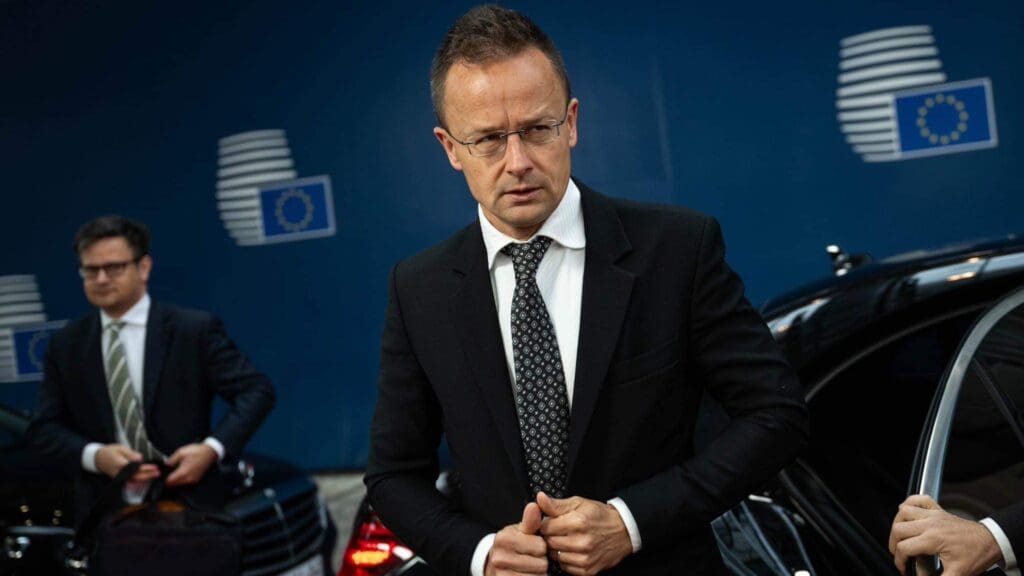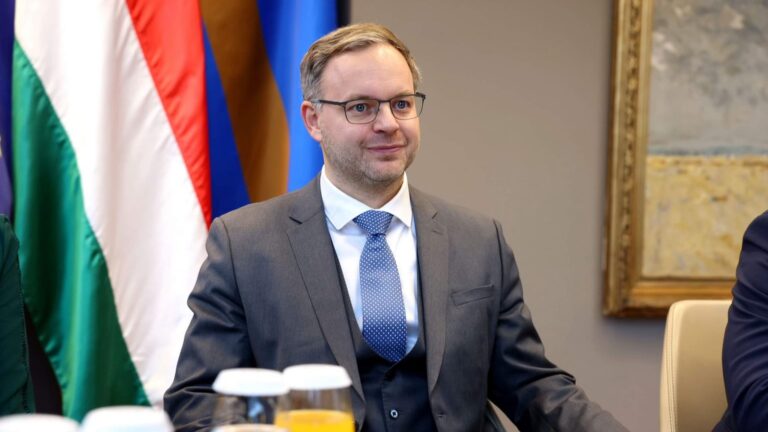‘if the hostages are not released prior to January 20, 2025, the date that I proudly assume Office as President of the United States, there will be ALL HELL TO PAY in the Middle East, and for those in charge who perpetrated these atrocities against Humanity.’ The above quote is from US President-elect Donald Trump, made on Monday in a lengthy statement on Truth Social addressing the plight of Israeli hostages taken by the Hamas terrorist organization on 7 October 2023. During the attack on Israel, the Palestinian terrorists abducted more than 200 hostages. As of today, 63 remain in captivity, 71 are believed to have been killed, and 117 have either been freed or rescued, according to most estimates.
Donald J. Trump Posts From His Truth Social on X (formerly Twitter): “Everybody is talking about the hostages who are being held so violently, inhumanely, and against the will of the entire World, in the Middle East – But it’s all talk, and no action! Please let this TRUTH serve to represent that if the hostages are not released prior to January… / X”
Everybody is talking about the hostages who are being held so violently, inhumanely, and against the will of the entire World, in the Middle East – But it’s all talk, and no action! Please let this TRUTH serve to represent that if the hostages are not released prior to January…
‘Those responsible will be hit harder than anybody has been hit in the long and storied history of the United States of America,’ Trump concluded his statement. Israeli President Isaac Herzog immediately welcomed the president-elect’s resolute stance. ‘We all pray for the moment we see our sisters and brothers back home!’ Herzog wrote in a post on X.
יצחק הרצוג Isaac Herzog on X (formerly Twitter): “Thank you and bless you Mr. President-elect @realDonaldTrump. We all pray for the moment we see our sisters and brothers back home! pic.twitter.com/Vm2WwtMNYZ / X”
Thank you and bless you Mr. President-elect @realDonaldTrump. We all pray for the moment we see our sisters and brothers back home! pic.twitter.com/Vm2WwtMNYZ
In what many view as a clear example of the Biden administration’s weakness and lack of diplomatic skill, more than a year has passed without an agreement to evacuate all remaining hostages alive from Gaza. This criticism is particularly sharp given that the hostages include not only Israeli citizens but also US–Israeli dual citizens.
Relatives of the US–Israeli hostages have repeatedly urged the Biden administration to negotiate directly with Hamas, even proposing bypassing Israel in such talks. However, these efforts have consistently failed to yield any progress.
Peace through Strength
Since the presidential election on 5 November, it has become increasingly clear that the Trump administration’s foreign policy and diplomacy will be far more decisive and effective. Trump is assembling a foreign policy team that includes figures such as Marco Rubio, Mike Waltz, and Sebastian Gorka, all staunch supporters of Israel with a zero-tolerance stance toward terrorist organizations.
This approach not only enhances Israel’s room for manoeuvre but also enables Washington to take stronger, more assertive actions. The embodiment of this decisiveness is none other than Trump himself.
During his first administration, Donald Trump demonstrated that a cornerstone of the America First policy is the ‘peace through strength’ doctrine—a foreign policy approach that Republicans have employed for many years, with varying degrees of effectiveness.
During Barry Goldwater’s 1964 presidential campaign, the Republican Party spent approximately $5 million on television advertisements promoting Goldwater’s foreign policy stance of peace through strength. In 1980 Ronald Reagan, who had campaigned for Goldwater in 1964, adopted the phrase during his presidential challenge against Jimmy Carter. Reagan criticized Carter’s weak and indecisive leadership, arguing that it emboldened enemies to target the United States and its allies. As president, Reagan made peace through strength a cornerstone of his foreign policy, a strategy credited with pressuring the Soviet Union into losing the arms race and contributing to the end of the Cold War.
🇺🇸 THE BEGINNING REAGAN'S "PEACE THROUGH STRENGTH " 🇺🇸
🇺🇸 ONE OF PRESIDENT RONALD REAGAN'S MOTIVATED SHORT SPEECH EVER. 🇺🇸 (any or all copyright belong to rightful owner's) THANKS FOR WATCHING 🎶MUSIC SCORE BY TREVOR RABIN BOTH ARTIST AND SONGWRITER 🎶
Donald Trump also embraced the peace through strength doctrine during his first tenure, with notable successes. In the final 16 months of his administration, the United States facilitated the Abraham Accords, fostering peace between Israel and three of its Middle Eastern neighbours, as well as Sudan. Trump’s administration brokered economic normalization between Serbia and Kosovo, encouraged Egypt and key Gulf states to resolve their rift with Qatar, and negotiated an agreement with the Taliban that resulted in no American combat deaths in Afghanistan for nearly his entire final year in office.
Trump was committed to avoiding new wars and prolonged counterinsurgency operations. His presidency was the first since Jimmy Carter’s during which the United States neither entered a new war nor expanded an existing conflict. Additionally, Trump achieved a rare US victory by defeating the Islamic State (ISIS) as an organized military force and eliminating its leader, Abu Bakr al-Baghdadi.
Determination Saves Lives
Now more than ever, there is a need for strong US diplomacy, as the Biden administration has undone much of what Trump had achieved during his four years in office. In both Europe and the Middle East, old divisions have resurfaced—issues that the Biden administration and the Democrats appear either unable or unwilling to address.
The winds of change are already evident. Shortly after Trump’s election, Israel signed a ceasefire agreement with Hezbollah. ‘Everyone is coming to the table because of President Trump,’ Mike Waltz, Trump’s nominee for the national security advisor position, wrote in a post on X. He added: ‘His resounding victory sent a clear message to the rest of the world that chaos won’t be tolerated. I’m glad to see concrete steps towards de-escalation in the Middle East.’
The peace through strength approach could prove particularly effective in Ukraine, where it is widely known that Russian President Vladimir Putin respects tough and decisive negotiating partners. The appointment of Keith Kellogg as special envoy to the war in Ukraine underscores this strategy.
Kellogg previously presented a peace plan to Trump that proposed conditioning Washington’s military and financial support to Ukraine on Kyiv’s willingness to negotiate with Moscow. At the same time, the United States would make it clear to Russia that withdrawing from the talks would result in arming Ukraine to the teeth—arguably the very definition of peace through strength.
Even Ukrainian President Volodymyr Zelenskyy has adopted a more cautious stance in light of the new realities. In recent days he has acknowledged that the Ukrainian army is not strong enough to liberate Russian-occupied territories and has highlighted the urgent need for a diplomatic solution. This marks a sharp departure from the ‘victory plan’ he outlined to the European Parliament in October. This is happening despite the Democratic administration seemingly making every effort to undermine or complicate Trump’s peace initiatives.
As new realities take shape, all indications suggest that peace through strength diplomacy could once again succeed in delivering long-awaited peace to both Europe and the Middle East. The first months of 2025 will be critical in this regard. However, barring any catastrophic escalation from the outgoing Biden administration, it would not be surprising if, by the end of next year, the fires of conflict in Ukraine and Gaza were finally extinguished, allowing the smoke to clear for a new era of stability.
Related articles:








